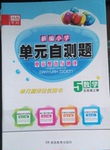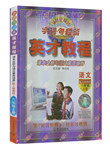题目内容
He imagines that people don’t like him, _____ they do.
A. and B. then C. so D. but
D
解析:
前后意思转折,故选 but。注:but they do = but they like him。

练习册系列答案
 新编小学单元自测题系列答案
新编小学单元自测题系列答案 字词句段篇系列答案
字词句段篇系列答案
相关题目
题目内容
He imagines that people don’t like him, _____ they do.
A. and B. then C. so D. but
D
前后意思转折,故选 but。注:but they do = but they like him。

 新编小学单元自测题系列答案
新编小学单元自测题系列答案 字词句段篇系列答案
字词句段篇系列答案